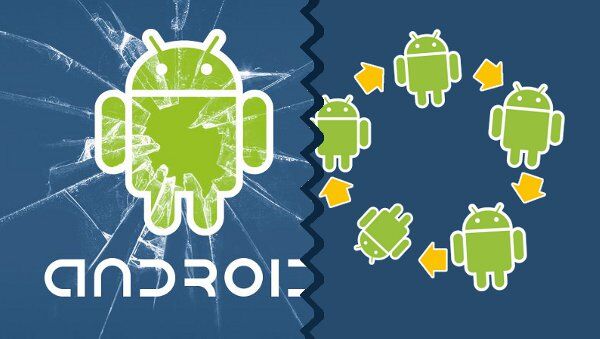Does Android has a problem of fragmentation or is it just an issue of iteration speeds?
Asymconf was great. I attended it last month.
Asymco is one of my magnificent 7 in mobile VoIP. He is an analyst with the best writing out there. When Horace Daidu decided to put out the Asymconf conference, I just knew I had to be there. And I succeeded in getting there – it was worth all the effort.
During the first session of Asymconf, we tackled the case study of the next disruptor in the mobile industry – in a way questioning who will overthrow Apple. At the end of it, Horace stated it was interesting that no one really mentioned Android in this regard. He then talked a bit about the iteration problem of Android, and said that people sometime refer to it as fragmentation.
Apple is vertically integrated – they own most of their value chain and can control the experience on their devices simply by having that tight integration between software and hardware.
Android is an ecosystem of vendors who cooperate to develop the phones. Google provides the Android operating systems, chipset vendors port it and optimize for it and then device manufacturers wrap the hardware around it. This means that there are iterations – while the Google team working on Android can iterate and innovate as far as Apple, the vendors who are responsible of producing the phones are lagging behind.
And that is true. There’s no vendor who keeps up with the speed of Google right now.
So what can change this? What can fix this issue and also cause some real threat to Apple?
- Tighter synchronization between handset vendors and Google on newer versions of the OS. They are probably doing that, but not in an extent that works well – especially not in pushing new OS versions to smartphones that were already sold.
- Time. With each iteration of Android, APIs get more stabilized, development paradigms are being set and apps are getting better. The more time that passes, the less fragmentation issues are found. I am more than happy with my current slew of apps on the Samsung Galaxy S II that I have, and I am eager to play with an HTC One device – I don’t even think there will be any fragmentation issues with the switch to a new Android phone for me.
- Being good enough – Android phones are great today and they are getting better with each release. Once they will hit being good enough for the majority of the people, what is the point in owning an iPhone instead of another phone?
- Apple slowing down on innovation will let vendors finish their iterations.
So you see, there is no real fragmentation issue with Android. It is a matter if iteration. If Google can fix that, or even just continue running just as fast for a few more years, they will get there.

